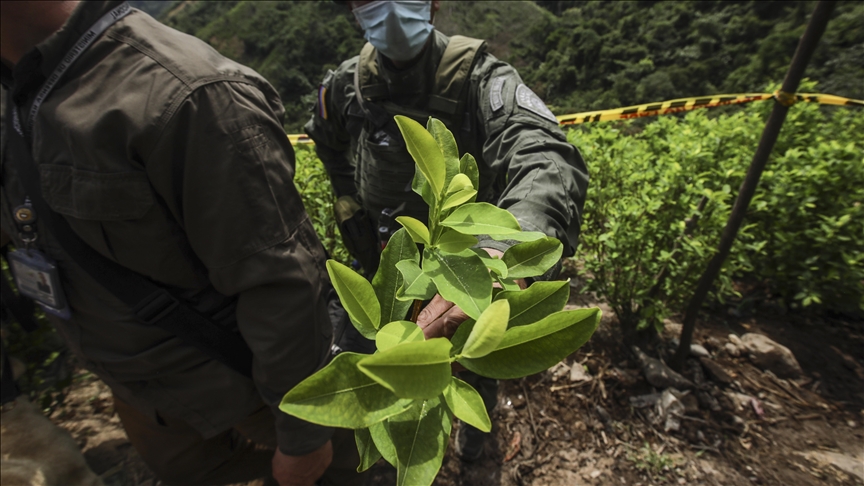Global cocaine trade hits record highs, driven by Colombian surge: UNODC
New report reveals unprecedented production, seizures and consumption in 2023, with Colombia accounting for over two-thirds of world's coca crops

BOGOTA, Colombia
The global cocaine trade reached unprecedented levels in 2023, with production, seizures and consumption all hitting historic highs, primarily driven by a significant expansion of illicit coca crops in Colombia.
The alarming trend was revealed by the United Nations Office on Drugs and Crime (UNODC) in its recently released World Drug Report 2025.
The report, which was presented in Vienna on Wednesday, indicates that global cocaine production hit a record 3,708 tons in 2023.
Colombia alone accounted for over 67% of the world's coca leaf crops and experienced a 53% increase in its cocaine production that year.
The 2023 figure for global production is 10 times higher than the lowest point recorded a decade ago.
Colombia, alongside Peru and Bolivia, remains a primary source for major cocaine flows destined for the Americas and Western and Central Europe.
Data from the Americas indicates that Colombia is the main source of maritime trafficking, with significant intensity towards the United States, Brazil, Venezuela, Mexico and Jamaica.
For land routes, Venezuela and El Salvador are frequently prioritized, while Venezuela is also a key destination for air shipments.
The report reveals that cultivation hotspots are concentrated in Colombia’s southwest regions, which are largely controlled by dissidents of former FARC guerrillas who did not sign the 2016 peace accord, maintaining their influence through violence and criminal activity.
The increased supply has been met by a growing demand worldwide. An estimated 25 million people globally used cocaine in 2023, a substantial jump from 17 million users a decade earlier. North America, Western and Central Europe and South America continue to represent the largest cocaine markets.
Angela Me, UNODC's lead author for the report, highlighted a "vicious cycle of increased consumption fueling production, and vice versa," adding that "cocaine markets are back at record levels."
The release of the World Drug Report is particularly significant for Colombia as the US State Department faces its annual decision on whether to certify Colombia's efforts in fighting drug trafficking.
Decertification would entail a cut in annual White House financial aid and could hinder Colombia's access to loans from international financial institutions like the International Monetary Fund.
Colombian Foreign Minister Laura Sarabia said during an April press conference this year that she hopes Colombia will maintain its certification.
"We are working to show that we are fighting drugs, that we are trying to build and consolidate a structured plan to reduce illicit crops, and we hope that the results will be evident and demonstrated in a certification from the United States," she said.








